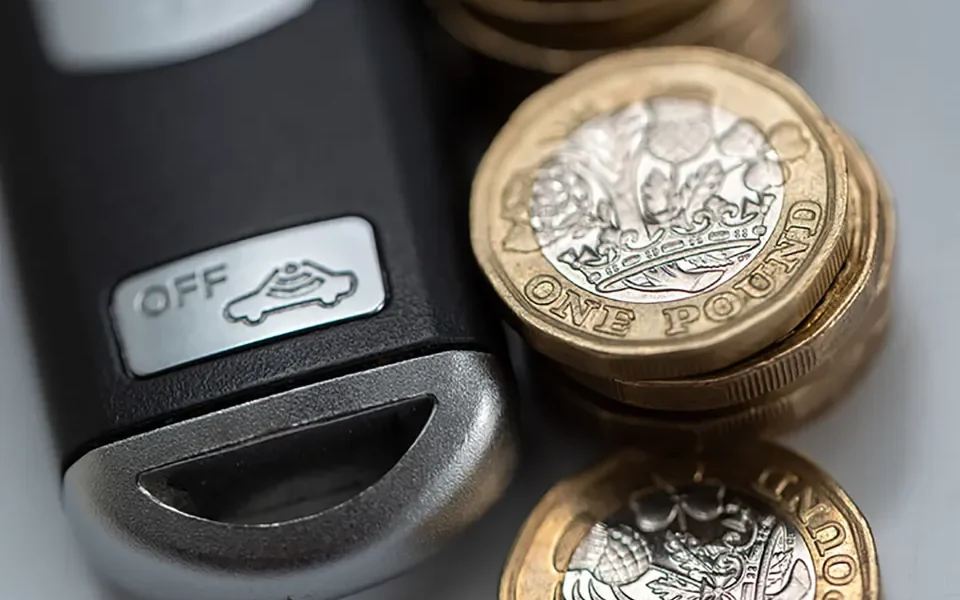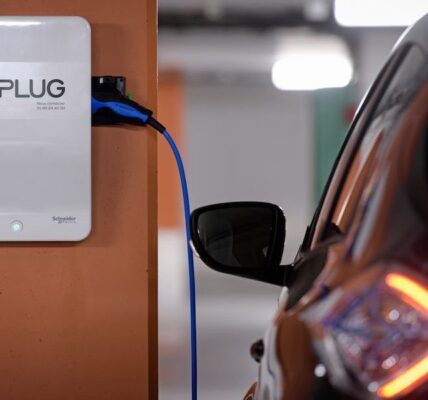An eleventh-hour deal has been struck between the UK and the EU that will postpone ‘rules of origin’ and the imposition of tariffs on electric vehicles (EVs). A three-year delay to the new trading arrangement, which would have come into force from January, is expected to be announced by the European Commission today (Wednesday, December 6).
The Society of Motor Manufacturers and Traders (SMMT) had warned that battery electric vehicles (BEVs) made in the EU could be hit with a £3,400 tax hike when sold in the UK if new rules of origin were implemented in January.
The UK-EU Trade and Cooperation Agreement (TCA) temporarily exempted electric vehicles (EVs) from the rules that said products must be substantially made in Britain or the bloc to qualify for the EU’s zero tariff, zero quota regime, because EV batteries are predominantly imported from Asia.
The tariff exemptions, which were agreed as part of the Brexit deal, were due to end from January 1, 2024.Under the more restrictive rules the only way to avoid these duties would be to source all battery parts and some critical battery material in the EU/UK, which manufacturers say is practically impossible to achieve today.
The SMMT said extending the rules for three years would avoid a tariff cliff-edge in just 26 days’ time, allowing the UK and EU automotive industries to continue to sell EVs into each other’s markets without penalty.
SMMT, alongside its EU counterparts, has warned consistently of the threat tougher locally sourced content requirements would pose to the industry on both sides of the Channel, if applied from 2024.
While the industry has invested billions in EV production both in the UK and EU, local battery supply needs more time to expand to meet demand.If the rules go ahead as originally planned, the SMMT says that EVs traded both ways would be subject to a 10% tariff – adding billions of pounds in costs, pushing up prices for consumers, and rendering both UK and EU manufacturers uncompetitive in each other’s markets.
It would severely undermine the transition to zero emission mobility, sending the wrong message to consumers about governments’ commitment. The automotive industry is therefore calling for the urgent agreement of the proposal, followed by delivery at pace, it added.
Mike Hawes, SMMT chief executive, said: “Adopting the Commission’s proposal would be a pragmatic solution, safeguarding the future of the EU and UK automotive industries, supporting motorists, the economy and the environment.”
Such an extension would avoid damaging tariffs on the very vehicles we need consumers to buy, allow UK and EU manufacturers to compete with the rest of the world and, crucially, give the European battery industry time to catch up.”
Above all, voting for the proposal will enable us all to cut carbon emissions while supporting growth and jobs across the entire EV supply chain. We urge every party to get behind it.”
The postponement will be voted on by 27 member states next week.Jon Lawes, managing director at Novuna Vehicle Solutions and MHC Mobility, said: “If approved this breakthrough is a lifeline for the UK and European motor industry.”
The rules of origin tariffs have cast a long shadow over the switch to EVs in the UK and Europe. With UK EV registrations declining in November, the rules threatened to further hit vehicle production costs and dampen EV adoption. “With the New Year’s cliff edge averted, the industry and policymakers on both sides of the Channel need to focus on scaling up domestic battery capacity and tackling the persistent charging infrastructure deficit to create a sustainable, competitive market for EVs.” Tim Buchan, chief executive officer at Zenith, also welcomed the postponement. “As a business, we are fully committed to the Government’s transition to battery electric vehicles, helping thousands of drivers to make the switch every year. Our funded car fleet is already made up of 45% BEVs,” he said.“
Now that extra clarity has been proposed, we hope the industry can use this time to collaborate and work towards improving our local supply chain ready for 2027.”
Nick Williams, managing director of Lex Autolease, part of Lloyds Banking Group, added: “If the delay is agreed it will provide certainty to manufacturers around continued EV supply into the UK.“
Longer term, the direction is clear that the UK will become an optimal place to build both vehicles and batteries to counteract the impact of any tariffs after the three-year period. This will also help to ensure that industry and business can continue to plan effectively for an electric future and drive down costs for consumers.”








